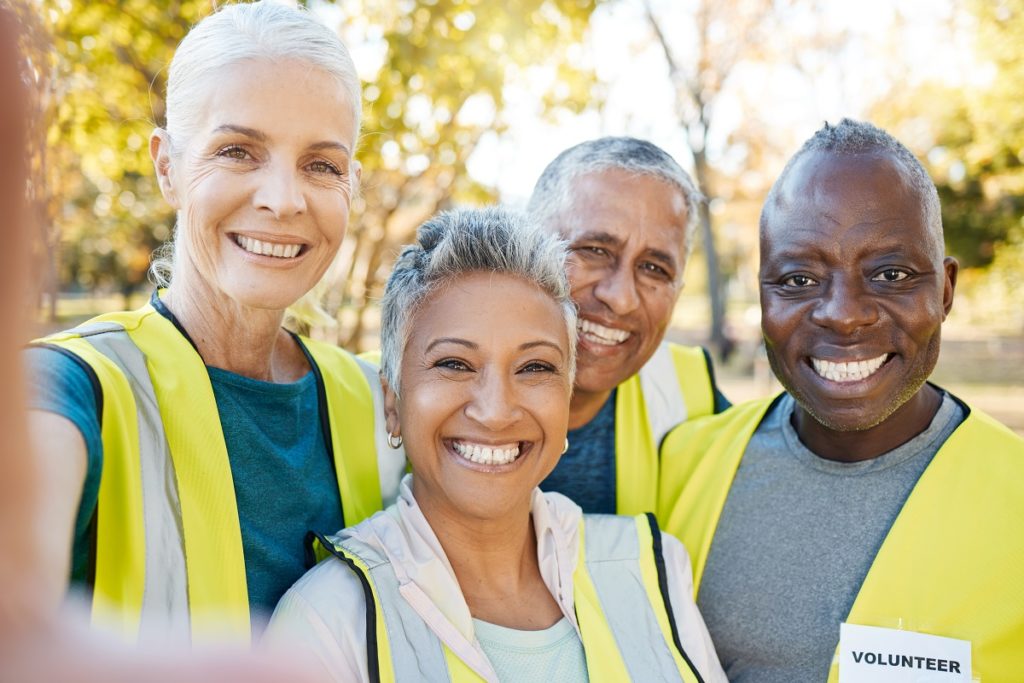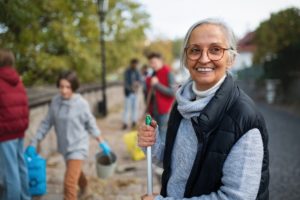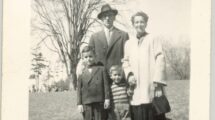by Peggy Edwards, Council on Aging of Ottawa
On December 14,1990, the United Nations designated October 1 as the International Day of Older Persons. It is an occasion for people around the world to celebrate the wonderful contributions older people make in our homes, communities, cities, regions and countries.

Older people in Canada make important contributions in several areas:
- Employment and the Economy. Like younger age groups, older adults pay taxes and purchase goods and services. Many are choosing to remain in—or return to—the paid labour market, either by choice or necessity to manage their multiple financial responsibilities, including support to younger generations.
- Supporting family. In 2018, three in 10 working seniors provided financial support to their children. Increasingly, grandparents choose to share a roof with younger generations to assist with their housing. Many help their grandchildren with items such as tuition for higher education, fees for sport and recreation activities, family travel, everyday necessities and gifts.
- Charitable giving. In 2020, Canadians aged 65 and older represented the largest proportion of donors to charitable organizations and causes among all age groups. Older people were more likely than younger donors to make larger donations and they had the highest median donation: $550.
- Caregiving: Over one million seniors in Canada provide care to a family member—often an older parent or person with a long-term health condition, disability or age-related need. Older adults also care for children, especially grandchildren, which enables parents faced with the high costs of daycare and after-school care to feel confident that their child is well looked after while they work.
- Civic engagement and leadership. Older adults may defend a cause, contact their elected officials, sign petitions, write letters or blog posts on pressing health and social issues, stand for public office or participate in political events and social movements. They are the most likely of any age group to vote. Many participate in seniors’ organizations and federations that advocate for the rights, health and strengths of older people, as well as concerns for younger generations. They operate at the local, provincial/territorial and national levels.
6. Volunteering. According to Statistics Canada, one out of three older adults are involved in formal volunteering, giving their time to community and social activities, groups and causes and aiding people who are not friends or family through an organization.
Voluntarism

Miriam Fry, who serves on the board of the Council on Aging of Ottawa, is an experienced volunteer in several areas. She advises people to look for something they care about deep down inside. It might be helping newcomers, children, older people who are isolated, vulnerable families, people in Indigenous, racialized and gender diverse communities or people living with disabilities or with low incomes. It might be working with young people to address climate change and other environmental issues or to teach communication and learning skills. It could also involve working on international issues and supporting people living in low-income and war-torn countries.
Miriam says, “If you see something that is wrong or things that need to be done, step up and take action by working with other volunteers. Don’t hide your light under a bushel. The life and work experiences you have make you well suited for the leadership, administrative, programmatic and operational roles that are needed.”
Voluntary organizations may be involved in advocacy, education, outreach, fundraising or direct services. Post-pandemic, organizations and programs are getting back to face-to-face operations, which is preferable to most volunteers.
The research suggests that volunteering is not only helpful to the community, it is also good for the health and well-being of the volunteer. Miriam says, “Volunteering is a way to contribute, to do good and have fun while you are doing it. It provides opportunities to learn, to share your knowledge and skills, to meet people and make new friends, to support others and grow together with other volunteers.”
Finding Volunteer Opportunities

When writer Betty Frieden said, “Aging is not lost youth but a new stage of opportunity and strength,” she captured the idea that older age is a time for participation, involvement and contribution, not decline and withdrawal from society. How would you like to be engaged in life in your older years?
If volunteering is on your agenda, here are some websites and organizations that can help you find voluntary opportunities that match with your interests and experience.
- Volunteer Ottawa: https://volunteerottawa.ca/volunteer/search-volunteer-opportunities
- City of Ottawa volunteer page: https://ottawa.ca/en/living-ottawa/volunteering
- Men’s Sheds Ontario: https://www.mensshedsontario.ca
- Ottawa/Seniors.com at https://www.ottawaseniors.com/service-type/entertainment-keeping-busy/employment-volunteering/
- Seniors’ organizations in Ottawa offering volunteer opportunities: http://www.canadian-universities.net/Volunteer/Seniors-Ontario-Ottawa.html
- Seniors Liaison Committee: List of seniors’ organizations—both national and provincial: https://www.ontario.ca/page/information-seniors-organizations#section-2
- Ontario Society of Senior Citizens Organizations: https://www.ossco.org/become-a-volunteer
- Consider joining the Council on Aging of Ottawa. The COA is always looking for volunteers that are looking to join others in advancing the wellbeing of older adults in age-friendly communities.

References: Contact wanderingpeggy@me.com if you would like the references for the information in this article.






